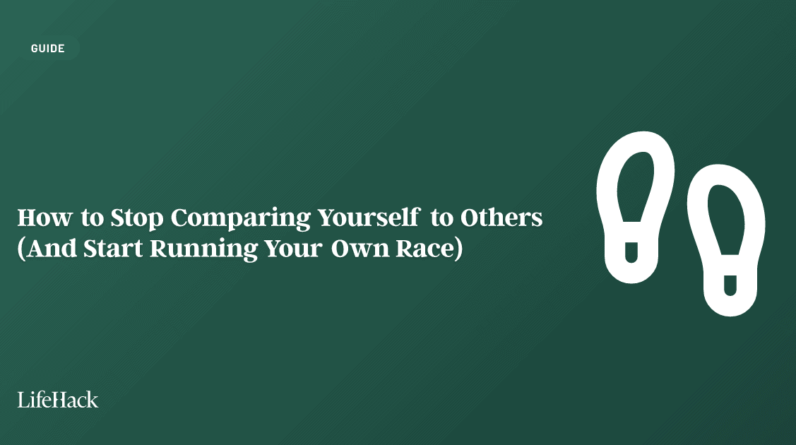
Stoicism is a philosophy that emphasizes rationality, self-control, and the acceptance of fate. The Stoics believed that by focusing on what is within our control and accepting what is not, we can live a life of tranquility and inner peace. One of the best ways to gain insight into the Stoic philosophy is through their quotes.
Stoic quotes are concise, powerful, and timeless. They offer practical advice on dealing with life’s challenges and nurturing virtues such as wisdom, courage, and justice. Whether you are facing a difficult situation or simply looking for inspiration, Stoic quotes can provide you with the guidance you need to live a more fulfilling life.
Origins of Stoicism
Stoicism is a school of Hellenistic philosophy that originated in Athens, Greece, around 300 BC. The philosophy was founded by Zeno of Citium, a Phoenician merchant who arrived in Athens and began studying philosophy. He taught his philosophy on the Stoa Poikile, a painted porch in the Agora of Athens, which is why his followers became known as Stoics.
Zeno of Citium and the Stoic Philosophy
Zeno of Citium taught that the path to happiness and freedom from suffering is through the development of moral character. He believed that virtue is the only good and that everything else, including wealth, health, and pleasure, is indifferent.
Zeno’s philosophy was heavily influenced by the teachings of Socrates and the Cynics, who valued self-control, simplicity, and living in harmony with nature.
The Stoic philosophy was further developed by Chrysippus, who systematized the teachings of Zeno and introduced logic as a tool for understanding the world. Chrysippus also expanded the Stoic notion of virtue to include wisdom, courage, justice, and self-control, which became known as the four cardinal virtues of Stoicism.
Influence of Stoicism in Ancient Rome
Stoicism became popular in Ancient Rome during the Roman Republic and Empire. Many Roman statesmen and intellectuals, including Cicero, Seneca, and Marcus Aurelius embraced the philosophy. Stoicism provided a moral framework for Roman society, which was undergoing significant political and social changes during this period.
The Stoic emphasis on self-control, duty, and rationality appealed to the Roman sense of discipline and order. Stoicism also provided a way for Romans to cope with the uncertainties of life, including illness, death, and political upheaval.
The philosophy continued to influence Western thought throughout the Middle Ages and Renaissance and remains a popular philosophy today.
Core Principles of Stoicism
Stoicism is a philosophy emphasizing the importance of living a virtuous life, free from negative emotions. The core principles of Stoicism can help you lead a more fulfilling and meaningful life.
Understanding What Is in Our Control
One of the fundamental principles of Stoicism is the idea that we should focus on what is within our control and let go of what is not. This means that we should not waste our time and energy worrying about things that are beyond our control, such as the weather, other people’s opinions, or the actions of others.
Instead, we should focus on what we can control, such as our thoughts, emotions, and actions. Doing so can make us more resilient, adaptable, and self-reliant. We can also develop a greater sense of inner peace and happiness, as we learn to accept and embrace the world as it is.
Pursuit of Virtue
Another core principle of Stoicism is the pursuit of virtue. Stoics believe that life’s ultimate goal is to live according to nature and to embrace wisdom, courage, justice, and self-control.
By striving to develop these virtues, we can become better people and contribute to the greater good of society. We can also find greater meaning and purpose in our lives, as we align our actions with our values and principles.
More importantly, the core principles of Stoicism can help us live a more fulfilling and meaningful life. By focusing on what is within our control and pursuing virtue, we can become better people and find greater happiness and inner peace.
Stoic Quotes on Resilience
Resilience is the ability to bounce back from adversity and challenges. Stoicism is a philosophy that emphasizes the importance of resilience in life. Here are some Stoic quotes on resilience that can help you develop your resilience.
Overcoming Adversity
Seneca once said, “It is not that we have a short time to live, but that we waste a lot of it.” This quote reminds us that life is short, and we should make the most of it. When faced with adversity, it’s important to remember that this too shall pass.
Marcus Aurelius said, “The obstacle is the way.” This quote reminds us that obstacles are opportunities for growth and development. When faced with adversity, we should embrace it and use it as an opportunity to learn and grow.
Embracing Challenges
Epictetus once said, “It’s not what happens to you, but how you react to it that matters.” This quote reminds us that we have control over how we react to challenges. When faced with a challenge, we should embrace it and use it as an opportunity to develop our character and resilience.
Seneca said, “Difficulties strengthen the mind, as labor does the body.” This quote reminds us that challenges are an opportunity to develop mental toughness and resilience. When faced with a challenge, we should embrace it and use it as an opportunity to develop our inner strength.
Stoic philosophy provides us with many quotes on resilience. These quotes can help us develop our resilience and overcome adversity and challenges. Remember, life is short, and we should make the most of it.
When faced with adversity, embrace it and use it as an opportunity to learn and grow. When faced with a challenge, embrace it and use it as an opportunity to develop your character and resilience.
Stoic Quotes on Wisdom
As a student of Stoicism, you understand the importance of wisdom in your life. Here are some of the best Stoic quotes on wisdom that will help you gain insights into how to live a more fulfilling life.
Learning and Knowledge
One of the core tenets of Stoicism is the pursuit of knowledge. The Stoics believed that knowledge was the key to a virtuous life. Here are some Stoic quotes on learning and knowledge:
- “Without freedom of thought, there can be no such thing as wisdom; and no such thing as public liberty, without freedom of speech.” – Benjamin Franklin
- “It is not that I am so smart. But I stay with the questions much longer.” – Albert Einstein
- “The only true wisdom is in knowing you know nothing.” – Socrates
These quotes emphasize the importance of questioning, learning, and reflecting to gain wisdom. They remind us that wisdom is not something that can be acquired overnight, but rather a lifelong pursuit.
Stoic Quotes on Human Behavior
Stoicism also focuses on human behavior and how we can control our emotions and actions. Here are some Stoic quotes on human behavior:
- “The mind is everything; what you think, you become.” – Gautama Buddha
- “If you are distressed by anything external, the pain is not due to the thing itself, but to your estimate of it; and this you have the power to revoke at any moment.” – Marcus Aurelius
- “It is not that we have a short time to live, but that we waste a lot of it.” – Seneca
These quotes remind us that we have the power to control our thoughts and emotions and that we should focus on what we can control rather than what is beyond our control. They also emphasize the importance of living in the present and making the most of our time.
These Stoic quotes on wisdom provide valuable insights on how to live a more fulfilling life. By focusing on learning, questioning, and reflecting, and by controlling our thoughts and emotions, we can gain wisdom and live a more virtuous life.
Stoic Quotes on Ethics and Virtue
When it comes to ethics and virtue, Stoicism has a lot to offer. Here are some of the best Stoic quotes on ethics and virtue that can help guide you toward a more fulfilling life.
Integrity and Honesty
Integrity and honesty are essential components of Stoic ethics. According to the Stoics, honesty is not just about telling the truth but also about living under your values and principles. Here are some Stoic quotes that emphasize the importance of integrity and honesty:
- “To be honest, to be kind – to earn a little and to spend a little less, to make upon the whole a family happier for his presence, to renounce when that shall be necessary and not be embittered, to keep a few friends but these without capitulation – above all, on the same grim condition, to keep friends with himself – here is a task for all that a man has of fortitude and delicacy.” – Robert Louis Stevenson
- “The first step in the acquisition of wisdom is silence, the second listening, the third memory, the fourth practice, the fifth teaching others.” – Solomon Ibn Gabirol
Stoic Quotes On Justice and Fairness
Justice and fairness are also important values in Stoic ethics. The Stoics believed that everyone was entitled to equal treatment and that justice should be based on reason rather than emotion. Here are some Stoic quotes that highlight the importance of justice and fairness:
- “The only true wisdom is in knowing you know nothing.” – Socrates
- “The wise man knows that it is better to sit on the banks of a remote mountain stream than to be emperor of the whole world.” – Zhuangzi
- “The greatest glory in living lies not in never falling, but in rising every time we fall.” – Nelson Mandela
Overall, Stoic philosophy offers a wealth of wisdom on ethics and virtue. By embracing these values, you can live a more fulfilling life and positively impact the world around you.
Reflections on Mortality and Transience
As a Stoic, you understand the inevitability of death and the transience of life. This is not a morbid thought, but rather a reminder to live each moment fully. And appreciate the beauty of life. In the next section, we will explore the Stoic philosophy on mortality and transience, and how it can help you lead a more meaningful life.
Acceptance of Death
The Stoics believed that death is a natural part of life and that it should be accepted with equanimity. As Marcus Aurelius wrote, “Death is a release from the impressions of the senses, and from desires that make us their puppets. And from the vagaries of the mind, and the hard service of the flesh.” By accepting death, you can free yourself from the fear of it, and focus on living a virtuous life.
One way to cultivate acceptance of death is through the practice of memento mori, which means “remember that you will die.” This practice involves reflecting on your mortality and the fleeting nature of life. It can help you appreciate the present moment, and focus on what is truly important in life.
Conclusion: Appreciation of Life’s Moments Through Stoic Quotes
In Conclusion, the Stoics believed in the importance of appreciating life’s moments, no matter how small or fleeting they may be. As Seneca wrote, “It is not that we have a short time to live, but that we waste a lot of it.” By cultivating mindfulness and being present in the moment, you can fully experience the beauty of life.
One way to cultivate appreciation of life’s moments is through the practice of gratitude. Take time each day to reflect on the things you are grateful for, no matter how small they may be. This can help you focus on the positive aspects of life, and cultivate a sense of contentment and fulfillment.
Lastly, the Stoic philosophy on mortality and transience can help you live a more meaningful life. By appreciating life’s moments, you can promote a sense of equanimity and gratitude, and focus on what is truly important in life.







